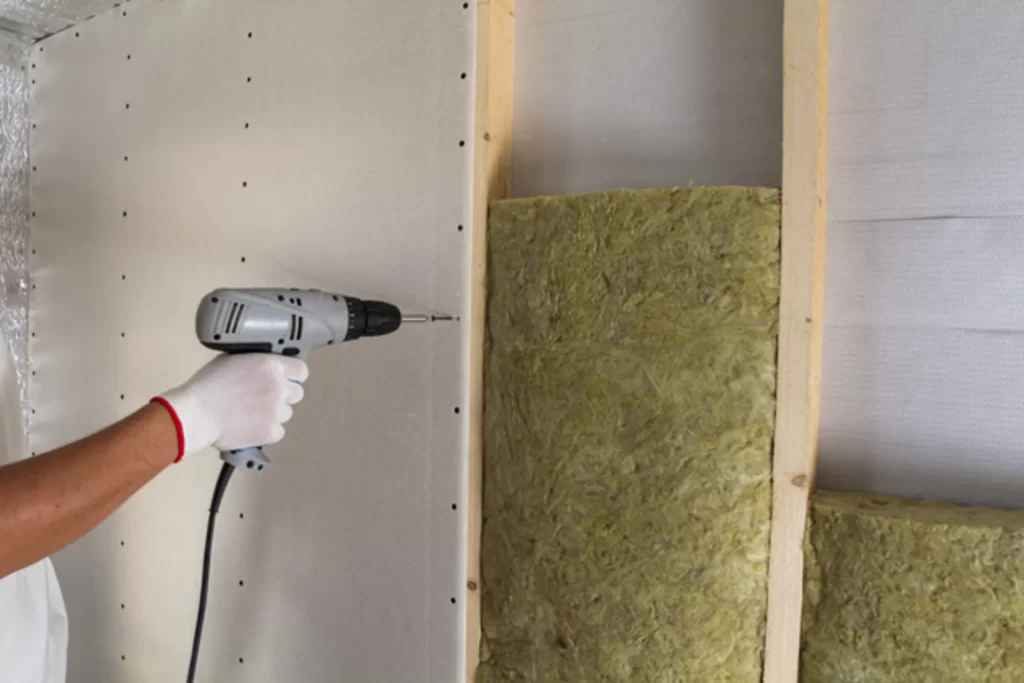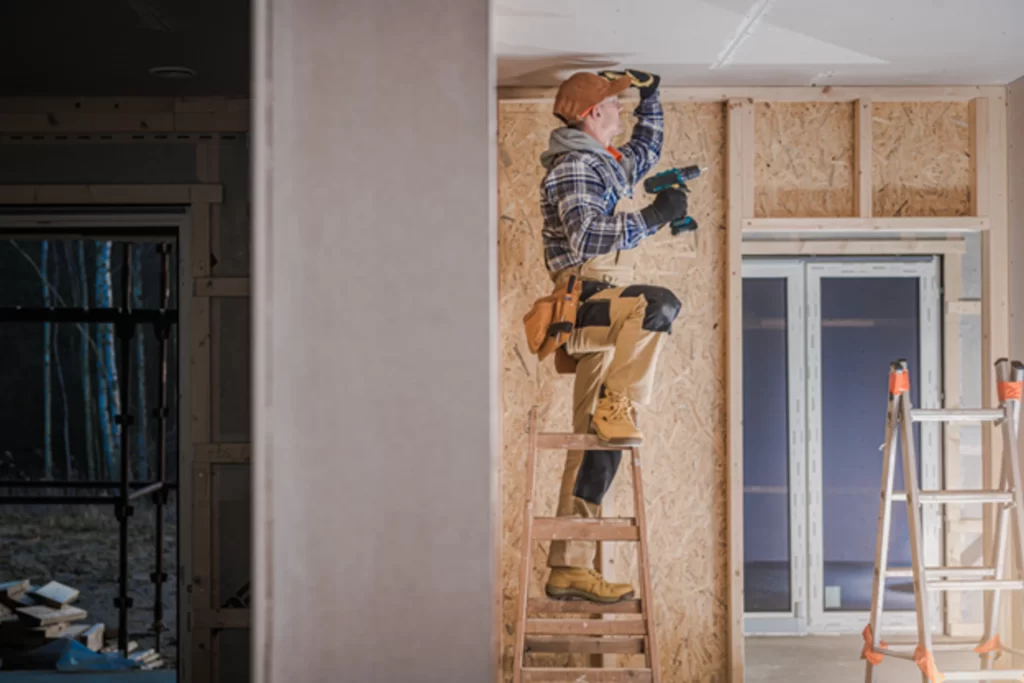After drywall finishing panel hangers have finished their work, drywall experts prepare the walls for paint or wall covering. The drywall finishing compound is spread in the spaces between the drywall panels after making indentations on the surface of the panels with nails and screws. They also use plaster and tape to join drywall panels and make a smooth surface.
The finishing touches on drywall installations are the responsibility of those working in drywall finishing positions. They are responsible for hiding any flaws in the drywall surface, patching drywall holes, repairing, and smoothing seams. A great deal of accuracy and care must be taken with the drywall finishers while working on a construction project.
There are three stages to the drywall installation and finishing process to install the finished product on walls, ceilings, or building partitions. Finishing drywall requires independent work and, when required, the use of initiative. They must also be excellent communicators to effectively convey their needs and issues to other tradespeople.
The following are typical qualifications for a drywall finisher:
Top Five Reasons To Become A Drywall Installer

The drywall installers are responsible for the installation services of drywall, sheathing, and other materials that cover walls, ceilings, and floors. To prepare a smooth surface for painting, drywall construction services require fitting panels to the building frame, shaping, and cutting to make room for fixtures like windows, outlets, ceiling fans, and hiding seams and screws.
One of the key elements influencing the high level of job satisfaction in skilled trades careers like drywall is the opportunity to engage in hands-on work. However, craft experts like drywall installers get to use their hands to build and create things. Compared to other career paths, there is less monotony at work because every project and day is different.
The construction industry is enormous and has opportunities. Every year, the drywall construction industry produces structures worth about $1.4 trillion. There is always a need to build new homes, offices, hospitals, schools, and drywall.
Because the construction industry places a high value on merit, professional drywall experts who demonstrate their expertise and worth in the field may be given a chance to advance their careers to more critical positions. The situation of the aging workforce is a factor that increases this opportunity. A skilled craft professional’s median age is 43, which is older than the average for most industries.

Drywall installation and finishing require physical stamina and strength, as well as problem-solving skills. This means that the work is both physically and mentally challenging, which can be rewarding for those who enjoy this type of work.
Drywall finishers can work for large construction companies, small businesses, or as independent contractors. This means that there is flexibility in terms of work location and hours. Additionally, drywall installers can work on various projects, from residential to commercial, which can provide a diverse work experience.
In conclusion, pursuing a career in the drywall construction industry can offer numerous benefits, including job security, good earnings potential, opportunities for advancement, physical and mental challenges, and flexibility. With the construction industry expected to continue to grow, becoming a skilled drywall installer can provide a stable and rewarding career path.
Read More: